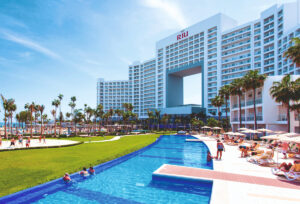Budget airlines have revolutionised cheap holidays in the 20th century, making trips overseas almost routine for UK holidaymakers and giving more Britons than ever before the chance to discover a whole new holiday experience – the short city break.
Despite the economic problems afflicting the world, plus the more specific challenges facing the travel industry, carriers such as easyJet and Ryanair continue to expand their operations across Europe and even beyond, now serving medium-haul destinations in North Africa, Turkey and the Middle East.
Customers have taken the concept of the budget airline to their heart, helping to make easyJet and Ryanair two of the most successful airlines in the world, if not always the most beloved. But most people seem to accept the idea of additional charges for check-in luggage and non-reserved seating if it makes cheap holidays in a massive diversity of overseas locations possible for the average pocket.
Another factor in the rise of the budget airlines has been their sometimes cut-throat competition. There have been many occasions when advertising regulators have had to reprimand one or other of the carriers for badmouthing their rivals in print or on a billboard, while the race to snap up more take-off and landing slots across the world continues apace. Only this week easyJet announced that from next summer it will be operating from new French bases as part of its strategy to increase its presence in that country and snaffle a better share of the huge market for cheap holidays in France.
From summer 2012 easyJet will open two new bases, in Nice and Toulouse, each with two aircraft. This is in addition to existing bases at Paris Orly, Paris Charles de Gaulle and Lyons. It plans to offer cheap flights from the new bases to 37 different destinations, including Basel, Bordeaux, Brussels and Nantes.
All of this spells good news for travellers, as greater competition means that prices stay low and the choice of flights increases.
You may also like
cheap flightscheap holidayscheap holidays in France





